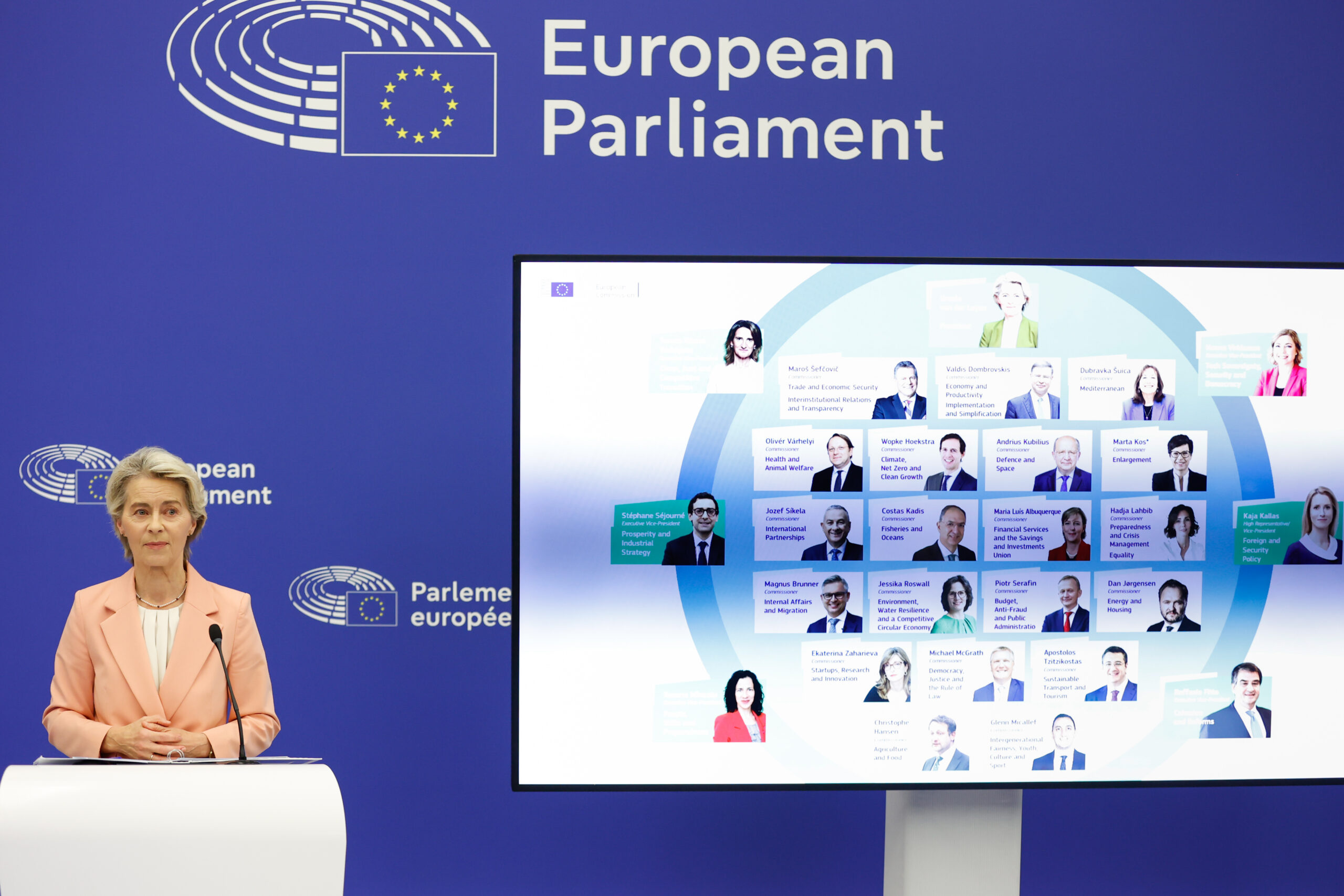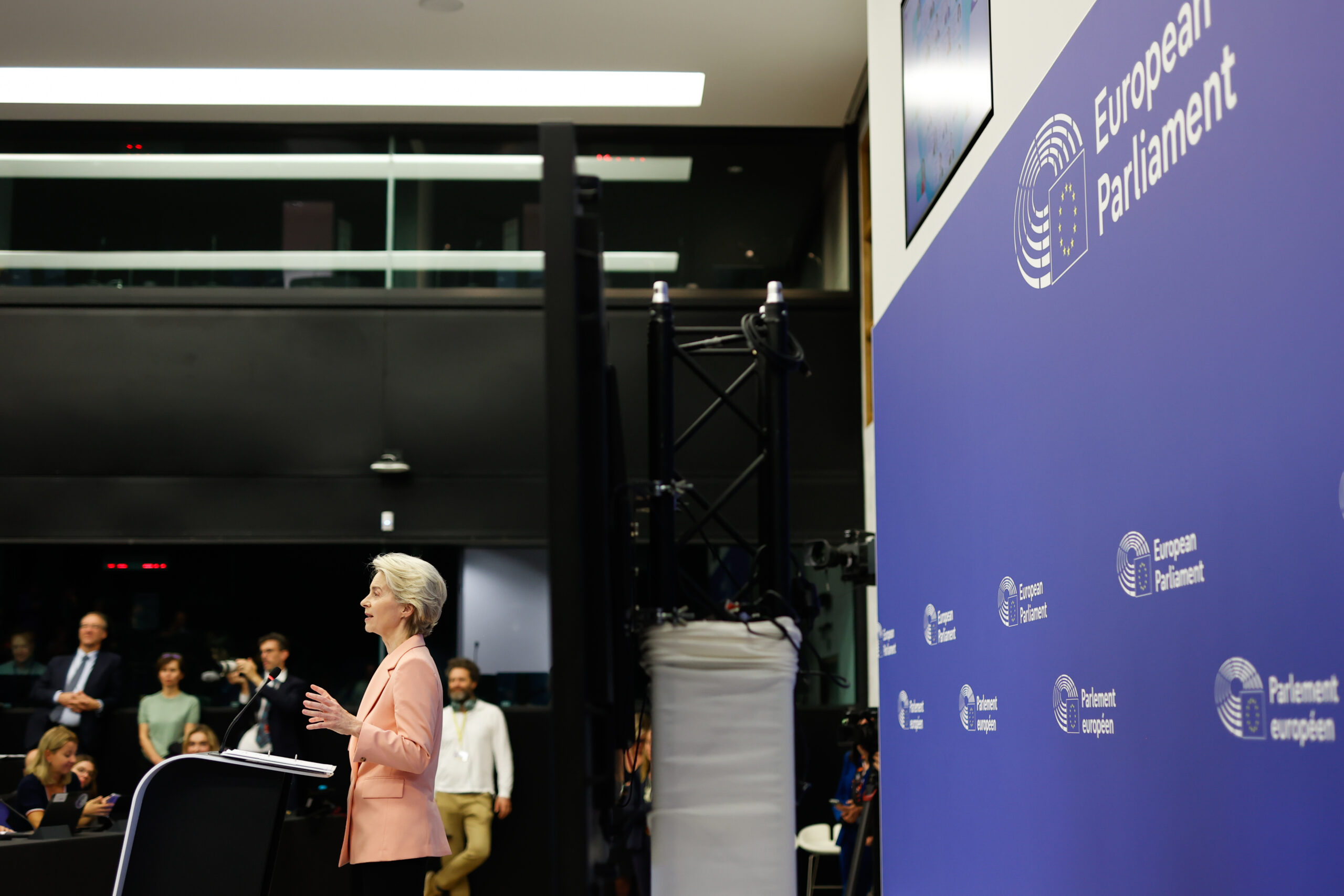On the 17th of September, Ursula von der Leyen announced the names and portfolios of the Commissioner-designates for the next European Commission. As Generation Climate Europe (GCE) we would like to see a European Commission that protects our planet, listens to young people and upholds the rights of future generations.
We believe that the College of Commissioners should be a reflection of a diverse Europe, as this contributes to better decision-making. We are therefore disappointed by the nomination process that has led to a majority of men serving in the upcoming Commission. We welcome, however, that the majority of executive vice presidents are women. While promising in some respects, it shows that there is much work to do in terms of a truly equal representation.
We welcome the appointment of one Commissioner-designate belonging to the younger generation, with Commissioner-designate Glenn Micallef being 35 years old. We also note the decrease in the average age of the new Commission-designates from nearly 56 years old in 2019, to 52 years old today. While this is a positive trend, there is still room for improvement, considering that the EU’s median age is 44.5 years old. We hope that this trend reflects a more dynamic College that blends experience with fresh perspectives.
Youth participation
Since our inception in 2019, GCE has been organising regular debates with European Commissioners in order to connect youth and EU policy makers. We appreciate to see that all Commissioner-designates have been tasked with organising a Youth Policy Dialogue within the first 100 days of their mandate. These Youth Policy Dialogues should be meaningful, regular and include a diversity of young people. They should give young people the opportunity to have an actual impact on decision-making and include follow up mechanisms. We are looking forward to engaging in these dialogues and expect a renewed and strengthened commitment for the Roundtables from all Commissioner-designates.
Intergenerational fairness
We welcome the creation of a new portfolio for intergenerational fairness, which GCE and our partners have been calling for. We are delighted to see that our calls have been heard, and we look forward to working with the incoming Commissioner. We hope to contribute to the Strategy on Intergenerational Fairness, that should preserve and recognise the rights of future generations.
The portfolio for intergenerational fairness falls within the ambit of the Commissioner for youth. While both policies can reinforce each other, we want to stress that youth policy and future generation policy should be pursued distinctly, as they have their own unique features. We would like to see the whole College of Commissioners consider how their policies impact youth, on one hand, and future generations, on the other hand.
Climate policy
We welcome the creation of portfolios that link the Green Deal and climate policy to economic policies such as competitiveness and taxation. In this crucial decade for climate action, it is fundamental to mainstream climate change policies across the economy, and these portfolios are a step in the right direction. We hope to see the continued implementation and strengthening of the Green Deal at the core of the work of the entire College in the next years.
At the same time, we regret to see that the Commission’s approach to the green transition overemphasises economic growth, a concept that belongs to an old-fashioned, linear economic model that the EU must overcome to achieve climate neutrality in a fair and sustainable way. A just and green transition requires measures that do not fit a growth-objective, such as addressing overconsumption and changing our diets.
With the Clean Industrial Deal, the incoming Commission wants to steer industries towards climate neutrality. While this is a commendable objective, the EU should not neglect the structural changes that are needed to achieve a zero-carbon society. The Clean Industrial Deal should not only focus on competitiveness and decarbonisation, but also respect environmental objectives such as restoring our nature and preserving healthy and biodiverse ecosystems.
Ultimately, we regret that the new 2040 climate goal of the EU has remained unchanged in the Mission Letter, despite the recommendation of the European Scientific Advisory Board on Climate Change (ESABCC) for a 95% reduction and the European Commission’s own Impact Assessment. While we acknowledge the increased ambition towards the 2040 target, we reiterate our call for the EU to enshrine climate neutrality by 2040 in legislation, in order to do our fair share in limiting global warming to 1.5°C according to the Paris Agreement, and thus securing a future-proof and just Europe.
What’s next?
GCE is looking forward to the Commissioner hearings in the European Parliament, taking place in November, to see if some of our concerns will be addressed. Once the new Commission is approved by the Parliament, GCE will initiate dialogues with the new Commissioners to make sure that young people’s opinions are considered from the very beginning of their mandate.
 Copyright (pictures): European Union 2024 – Source: EP
Copyright (pictures): European Union 2024 – Source: EP

